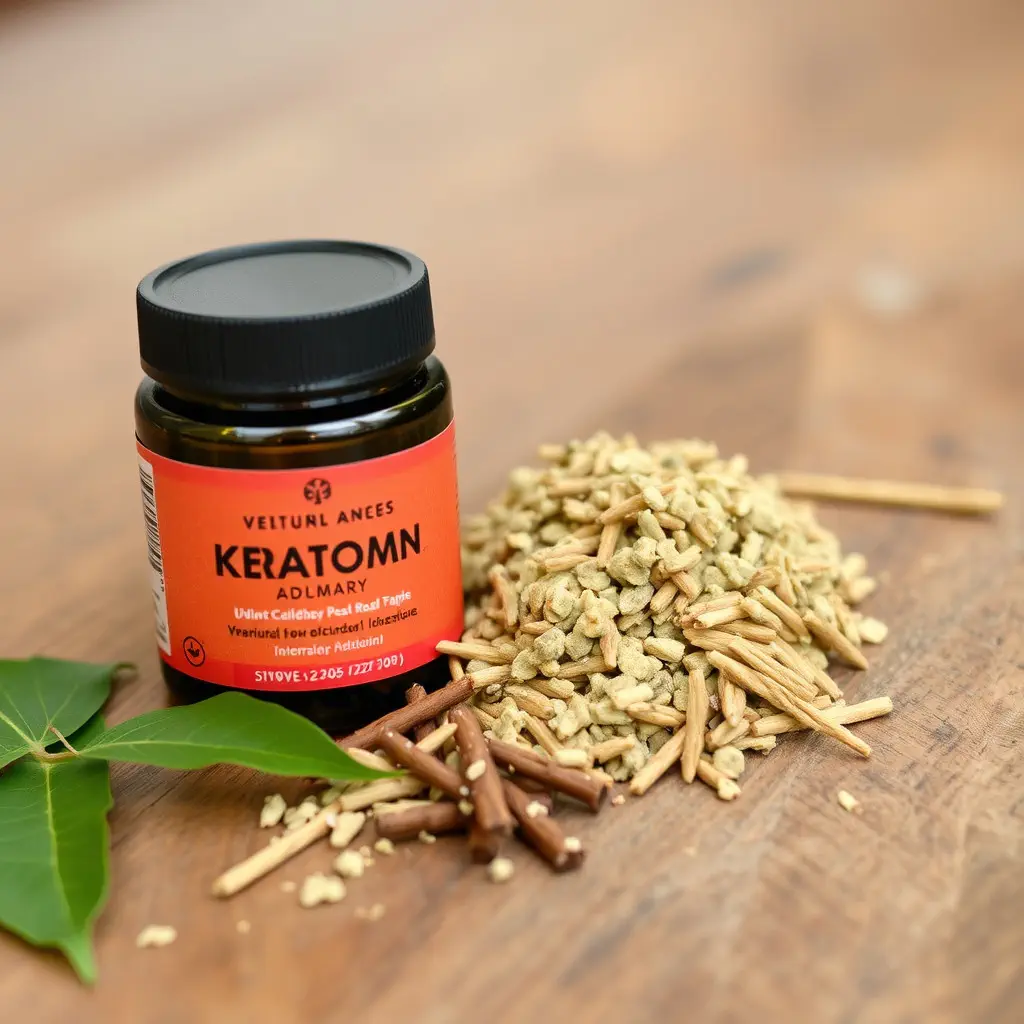Kratom, a tree from Southeast Asia, contains alkaloids like mitragynine and 7-hydroxymitragynine that may offer anti-inflammatory benefits by modulating immune responses. These effects are believed to be due to interactions with various receptors, potentially including opioid receptors. Research is ongoing to elucidate the full scope of kratom's mechanisms, but it shows promise in inhibiting pro-inflammatory cytokines and enzymes. In the U.S., especially in Michigan, kratom's legality is complex and varies by state and locally; as of the latest information, it is not explicitly illegal at the federal level but is subject to state regulations like those implemented in Michigan, which have fluctuated between restrictions and bans. Users should remain informed about the evolving legal landscape and consult healthcare professionals for guidance on its use, considering the potential health benefits and the need for further scientific research to understand its long-term effects. For accurate updates on kratom's status in Michigan, individuals should refer to official state regulations and resources like the American Kratom Association.
Exploring the potential of kratom as a natural inflammation reducer, this article sheds light on its mechanisms and legal status within Michigan. Delving into the science, we uncover how specific alkaloids found in kratom leaves contribute to its anti-inflammatory effects. Moreover, navigating the complex legality of kratom use in Michigan is crucial for consumers seeking its benefits. This comprehensive guide provides clear usage guidelines and safety considerations for those interested in knowing “Is kratom legal in Michigan?”
- Kratom and Inflammation Reduction: Understanding Its Mechanisms and Legal Status in Michigan
- The Science Behind Kratom's Anti-inflammatory Properties: Alkaloids at Work
- Navigating the Legality of Kratom in Michigan: Usage Guidelines and Safety Considerations
Kratom and Inflammation Reduction: Understanding Its Mechanisms and Legal Status in Michigan

Kratom, a tropical tree native to Southeast Asia, has garnered attention for its potential anti-inflammatory properties. The active compounds found in kratom leaves, namely mitragynine and 7-hydroxymitragynine, are thought to interact with various receptors in the body, including opioid receptors, which may contribute to its anti-inflammatory effects. These interactions can modulate the immune response, potentially reducing inflammation at the site of injury or illness. The exact mechanisms by which kratom exerts its anti-inflammatory actions are still under investigation; however, preliminary studies suggest that it may inhibit pro-inflammatory cytokines and enzymes involved in the inflammatory process.
In terms of its legal status, the use of kratom is a complex issue. As of the knowledge cutoff date, kratom is not a controlled substance under the federal Controlled Substances Act; however, its legal status varies by state and county within the United States. In Michigan, the regulatory environment has seen changes. The state initially banned kratom in 2018, classifying it as a Schedule I controlled substance. However, this decision was met with significant public debate and backlash from many of its proponents who argued for its legal status due to its potential benefits. Following this controversy, Michigan revised its stance, allowing the sale of kratom but imposing restrictions on where it can be sold and how it is marketed. It is important for consumers in Michigan to stay informed about the most current laws and regulations regarding kratom use within their jurisdiction, as state legislation can change over time. Those considering using kratom for inflammation reduction should consult with a healthcare provider to ensure safe and effective use.
The Science Behind Kratom's Anti-inflammatory Properties: Alkaloids at Work

Kratom, a tropical evergreen tree native to Southeast Asia, has garnered attention for its potential anti-inflammatory effects. The leaves of kratom contain a variety of alkaloids, with mitragynine and 7-hydroxymitragynine being the most prominent. These compounds are believed to be responsible for kratom’s therapeutic properties, including its anti-inflammatory actions. The science behind these effects is rooted in the alkaloids’ ability to modulate the body’s immune response. They achieve this by interacting with various receptors and signaling pathways that regulate inflammation. For instance, these alkaloids may influence the nuclear factor kappa B (NF-κB) pathway, a key mediator of inflammatory responses. By inhibiting the activation of NF-κB, kratom’s alkaloids could potentially reduce the production of pro-inflammatory cytokines, thereby mitigating the body’s inflammatory response.
Research into kratom’s anti-inflammatory properties is ongoing, with studies both in vitro and in vivo providing insights into its mechanisms of action. The legal status of kratom varies across different regions, including the United States. For example, as of my knowledge cutoff in 2023, kratom is legal in Michigan, allowing residents to explore its potential benefits, provided it is used responsibly and within the context of existing regulations. Users interested in the anti-inflammatory effects of kratom should consult with healthcare professionals, especially given the complexity of inflammation processes and individual differences in response to kratom’s alkaloids. Understanding the nuances of how these compounds interact with the body is crucial for determining their efficacy and safety profile.
Navigating the Legality of Kratom in Michigan: Usage Guidelines and Safety Considerations

Kratom, a plant originating from Southeast Asia, has gained attention for its purported effects on inflammation reduction and pain management. As interest in kratom grows, so does the curiosity about its legal status, particularly in states like Michigan. Is kratom legal in Michigan? The legality of kratom varies across different jurisdictions within the United States, with some states imposing restrictions or bans on its sale and use. In Michigan, kratom is currently in a gray area; it is not explicitly illegal at the federal level but has faced legislative attempts to regulate or ban it. As of the knowledge cutoff date, kratom remains legal in the state, though local ordinances may differ, and this status could change with new legislation.
For those considering using kratom for inflammation reduction or any other purpose, it is crucial to adhere to usage guidelines and safety considerations. The American Kratom Association provides a set of ‘Good Practice’ guidelines that recommend starting with a low dose and gradually increasing as needed, while also advocating for third-party testing and GMP (Good Manufacturing Practices) compliance from vendors. Safety considerations also include avoiding kratom if pregnant or breastfeeding, as well as not mixing it with other substances like alcohol or opioids due to the potential for adverse reactions. Users should consult with healthcare professionals before incorporating kratom into their health regimen, especially given its complex legal status and the need for further scientific research on its long-term effects. It is also imperative to stay informed on any legislative changes that may affect kratom’s availability in Michigan.
Kratom’s potential as a natural approach to inflammation reduction offers intriguing insights into its anti-inflammatory properties, which are mediated by specific alkaloids. The discourse on whether kratom is legal in Michigan underscores the importance of clear regulations and safety guidelines for its use. As outlined in this article, understanding the mechanisms behind kratom’s effects and the current legal standing in Michigan equips consumers with the knowledge necessary to make informed decisions. Prospective users are advised to consult with healthcare professionals and adhere to usage guidelines to ensure safe consumption. With further research, kratom may emerge as a valuable tool in managing inflammatory conditions, provided its legal status is navigated with care and understanding.






